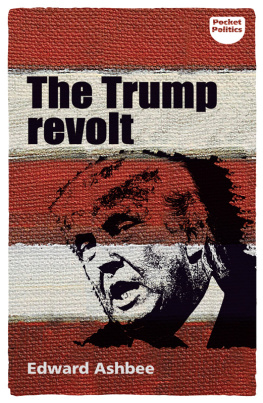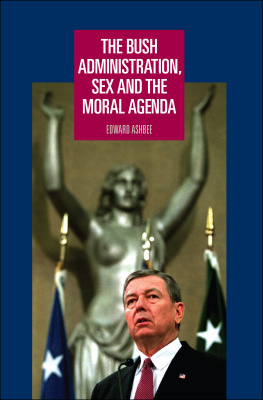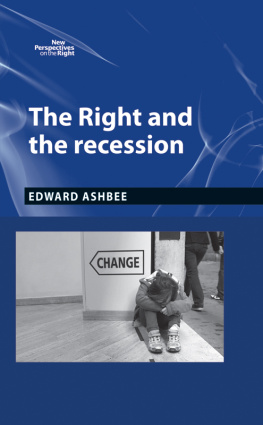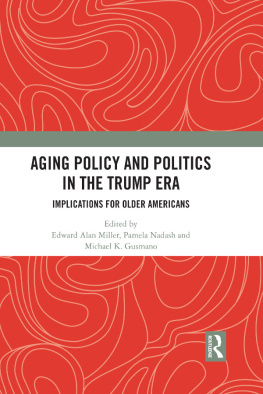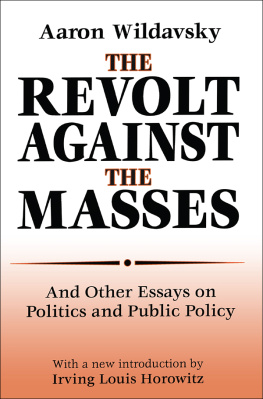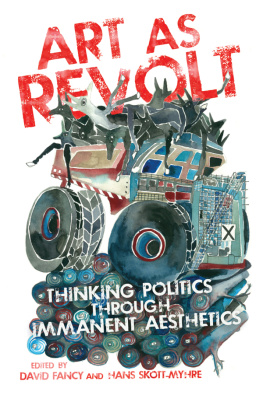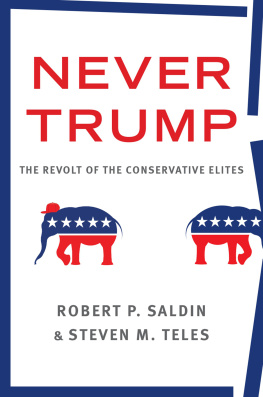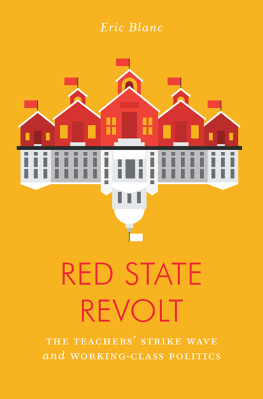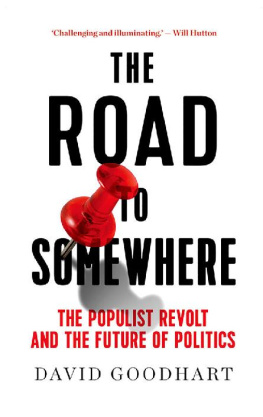POCKET POLITICS
SERIES EDITOR: BILL JONES
Pocket politics presents short, pithy summaries of complex topics on socio-political issues both in Britain and overseas. Academically sound, accessible and aimed at the interested general reader, the series will address a subject range including political ideas, economics, society, the machinery of government and international issues. Unusually, perhaps, authors are encouraged, should they choose, to offer their own conclusions rather than strive for mere academic objectivity. The series will provide stimulating intellectual access to the problems of the modern world in a user-friendly format.
Previously published
Reform of the House of LordsPhilip Norton
Copyright Edward Ashbee 2017
The right of Edward Ashbee to be identified as the author of this work has been asserted by him in accordance with the Copyright, Designs and Patents Act 1988
Published by Manchester University Press
Altrincham Street, Manchester M1 7JA
www.manchesteruniversitypress.co.uk
British Library Cataloguing-in-Publication Data
A catalogue record for this book is available from the British Library
ISBN978 1 5261 2298 8paperback
First published 2017
The publisher has no responsibility for the persistence or accuracy of URLs for any external or third-party internet websites referred to in this book, and does not guarantee that any content on such websites is, or will remain, accurate or appropriate
Typeset
by Toppan Best-set Premedia Limited
1
Introduction
))
When Donald Trump stepped onto the stage to claim victory at the New York Hilton Midtown he seemed unusually subdued. This was perhaps fitting. Just a few hours earlier, Trump had been said to have no mathematical possibility of securing victory. Nonetheless, although he eventually came up well short in terms of winning the popular vote and his margins in some states were wafer-thin, his predicted Electoral College Vote was decisive.). The result defied the expectations of almost all pollsters and pundits as well as the campaign teams.
).
).
From this perspective, the eventual 2016 Republican nominee would be someone such as former Florida Governor Jeb Bush, Senator Marco Rubio or Governor John Kasich, just as other figures with elite backing, for example Mitt Romney who had won the primary battle in 2012 and Senator John McCain who had been chosen in 2008, had proved victorious. The consensus was that while a more radical figure, perhaps drawn from the ranks of the Tea Party movement would almost certainly make a stand in 2016, he or she would eventually be cast aside as elite interests used their resources to ensure that their anointed candidate was victorious.
None of this was, of course, to be. Despite their spending power, the party establishment candidates were swept aside. Bush, Kasich and Rubio crashed and burned. Texas Senator Ted Cruz, who had long been seen as an ideological zealot and outcast by many fellow Republicans in Congress was the last man standing in the battle to deny Trump the nomination and he thus gained a measure of rather reluctant elite backing as the only credible alternative. Nonetheless, even Cruz succumbed following his defeat in the Indiana primary.
Following the conclusion of the nomination fight, there had then been widespread expectations that Trump would pivot, embrace conventional political norms and direct his campaign towards the median voter. That had, after all, been with just a few exceptions, the conventional route to the presidency although the claims and commitments that candidates felt compelled to give during the primaries sometimes limited their ability to secure middle-ground votes at a later stage.
Trump, however, stubbornly failed to pivot. His vituperative early morning tweets and verbal assaults continued. He faced numerous accusations about his personal conduct that led many within his own party's ranks to condemn him. Instead of moving towards less abrasive positions and classical political formulae the populist streak that had always defined his campaign became even more pronounced as the US moved towards Election Day. On many issues it constituted a sharp break with the mix of economic and cultural policies that had defined Republican Party politics since the 1970s although there had been some hints of what was to come in both the 2008 and 2012 contests. Angry crowds at Trump rallies not only demanded the building of a border wall and imprisonment of Hillary Clinton but also cheered demands to drain the Washington swamp. A final campaign advertisement appeared to draw upon Alt-Right thinking (see pp. 4752) lambasting Wall Street and globalism in terms that, paradoxically, resembled the critiques put forward by the further reaches of the left:
)
Commentators were dismissive. Although it was acknowledged that this strategy could win loyal and enthusiastic backing amongst some voters (those whom Hillary Clinton was to dub deplorables), it was seen as too narrow a slice of the electorate. Thus, Trump's defeat seemed assured. To many he appeared such an improbable figure.
Inevitably, therefore, even before the final votes were tallied on November 8th, searching and sometimes wracked questions began to be thrown around. They were all variations on a single theme. How did a candidate who broke with almost every single norm governing candidate behaviour, appeared to eschew the professionalised forms of campaigning that have been adopted in recent years, and who had been more or less disowned by Republican elites, prove victorious?
the final outcome also has to incorporate the timing of particular developments, the order in which they took place and of course simple chance events.
This book argues that each of these overlapping factors contributed to both Trump's victories on the path to the Republican nomination and his eventual capture of the presidency. On top of this, other questions should however be addressed. Does the election have broader implications? Does Trump's victory signal, as the French Ambassador to the US asserted, the demise of neoliberalism? Or, to ask a perhaps more limited question, did the election usher in a process of reconfiguration that is changing the political bases upon which neoliberalism has hitherto been structured? Are old and once familiar political cleavages now being displaced by new forms of division? And, furthermore, is all of this a story of American exceptionalism? Or should we instead focus on the many similarities and overlaps between the Trump campaign and the right-wing populist parties in Europe? Is illiberalism spreading as part of a process of change taking place across much of the developed world? The Afterword considers this.
: 919). Furthermore, Trump will at every point be compelled to negotiate a path with Republican elites that were far distanced from him politically and personally during the 2016 campaign. On top of this, unanticipated events, developments and processes always take their toll on the most developed of plans.


